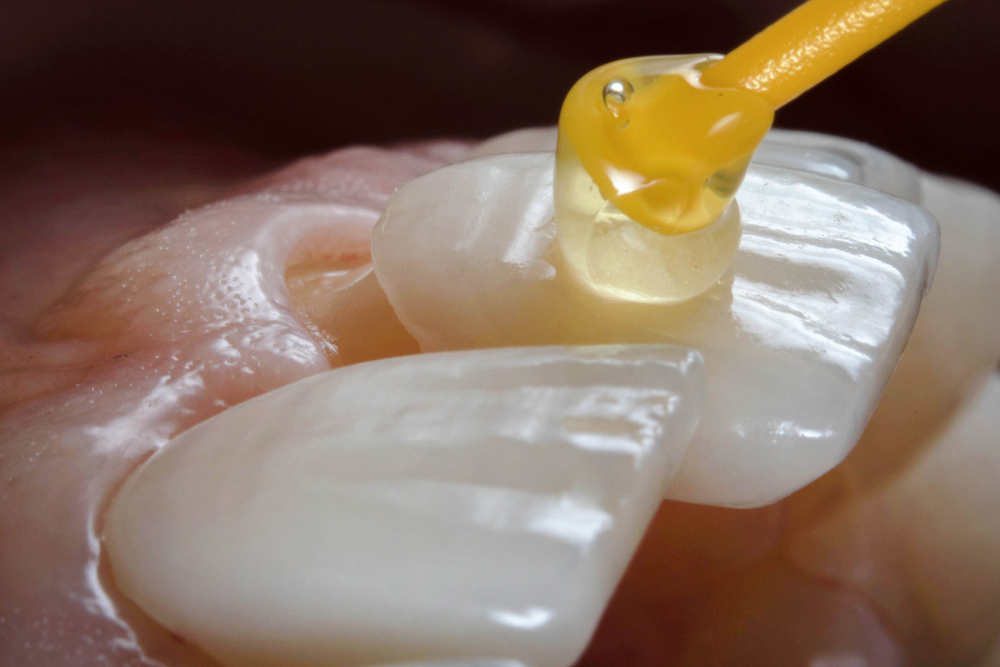How long do Porcelain Veneers last? Here’s what you need to know
If you’re self-conscious about your smile, getting dental veneers could be the solution to achieving the look you desire. It’s a popular choice for many individuals in Australia who grapple with chipped, discoloured, misshapen, or gapped teeth.
Veneers are wafer-like, white-coloured overlays made of porcelain or various types of composite materials that adhere to the visible parts of the tooth. The idea behind their use is to give teeth a natural-looking, classically-shaped appearance, to enhance the overall look of your smile.
One of the most frequently asked questions we get is – How long do porcelain veneers last? The answer to this isn’t as straightforward as you might think. Here’s everything you need to know.
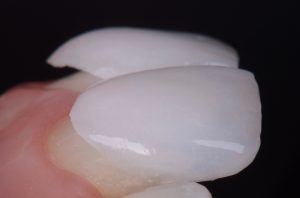
How do Veneers work?
Veneers are usually custom-made for each individual and hand-crafted to look like natural teeth. If you’re looking to perfect your natural smile in a non-invasive way, porcelain veneers would be the way to go.
Your dentist would start the procedure by removing anywhere between 0.3 and 0.5 mm off the surface of the tooth. This is the ideal amount that would keep your teeth at their maximum strength without damaging the nerves. Having this base also ensures that your veneers last a long time with little to no issues during their lifetime.
https://www.instagram.com/p/CNBMY7sLNxU/?utm_source=ig_web_copy_link
Keep in mind that not every tooth has to be covered with a veneer. It’s usually the problematic ones and, in most cases, the neighbouring teeth as well. Your dentist would be best placed to make that decision for you.
Additionally, depending on the current state of your teeth, you can get full veneers that cover the entire surface of the tooth or partial ones that only conceal the damaged areas. It all depends on what you’re looking to achieve.
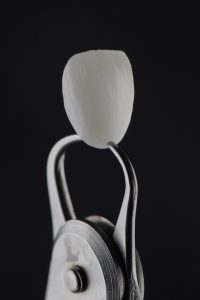
How long do Porcelain Veneers last?
Of all the different types of veneers that exist, porcelain ones are considered the best for two reasons. For one thing, they are stain-resistant. You can have them on for several years, and they’ll look as good as they did on day one. There’s also their light-reflecting property that mimics the natural shine of healthy, white teeth.
Composite veneers may be cheaper than their porcelain counterparts, but they don’t last as long. Now, to the all-important question – How long do porcelain veneers last?
On average, their lifespan is typically 10 to 15 years, sometimes longer. In reality, it boils down to your daily habits and how well you care for them.
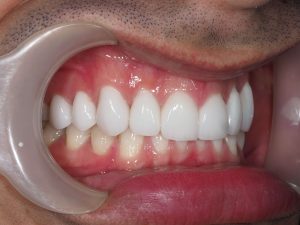
What shortens the lifespan of Veneers?
While porcelain veneers are almost as strong as tooth enamel, that is not to say they’re indestructible. Biting down on hard foods and ice cubes and chewing inedible items like pen-tops can have damaging effects on porcelain veneers, which drastically reduces their lifespan. Here a few other factors that may affect the longevity of veneers.
1. The pre-installation state of your teeth
If your teeth were extensively damaged before getting your veneers installed, there’s a good chance you might need to replace them much earlier than expected. Having cracked or chipped teeth, for instance, has been known to shorten their useful life.
2. Poor dental hygiene
Oral health and hygiene plays a crucial role in how long your veneers last. Failing to floss, brush your teeth frequently, or skipping your biannual visits to the dentist may affect their lifespan.
While the veneers themselves won’t decay, remember, there’s still a living tooth behind them. Tooth decay on the living tooth can form a cavity. Not only does this threaten the long term health of your tooth, but it could also potentially shorten the lifespan of your veneers.
3. Tooth-grinding
Grinding your teeth puts immense pressure on your veneers. They do begin to wear down, which means you might have to replace them at some point. If you’re prone to grinding your teeth, especially while you sleep, ensure you wear a nighttime mouth guard to protect your veneers from damage.
4. Lack of mouth protection
People who play contact sports without wearing a mouth guard for protection expose their veneers (and teeth) to potential chipping or breakage. Any sport that involves tackling players is considered a contact sport. Wearing a mouth guard before the big game starts goes a long way in preserving the integrity of your veneers.
5. Using teeth in place of tools
If you’re always using your teeth to open things that you otherwise can’t open using your hands, there’s a good chance you’ll end up chipping your veneers in the process. The next time you’re tempted to rip open a bag or tear off packaging using your teeth, try reaching for the scissors instead.
6. Smoking
Smoking is not only harmful to your health but also bad for your veneers and new smile. While porcelain veneers are generally stain-resistant, they will start to look yellow after a few years of smoking.
The best thing to do would be to cut down on the number of cigarettes you smoke every day or quit smoking entirely. Your veneers and, more importantly, your health will thank you in the long run.
7. Going to an inexperienced dentist
Last but certainly not least, having your veneers fitted by an inexperienced dentist will have a direct bearing on their longevity. If veneers are bonded to the tooth surface incorrectly, they can affect your bite and your speech.
Some people report experiencing recurrent headaches as a result of an improperly installed porcelain veneer. Having them custom-made and fitted by an expert will ensure they last for 10+ years without any issues.
Your dentist should also use high magnification. Correct preparation of the tooth requires extreme precision. Without magnification it is not possible to prepare the margins of the tooth so that they are precise and smooth. This will result in poorly fitting veneers where the space between the tooth and veneer can trap food or bacteria which will shorten the life of the veneers.
In addition to the preparation a quality dental lab is essential. Quality labs take the time to ensure accuracy and beauty in the veneers. It can mean the difference between veneers lasting several years to decades.
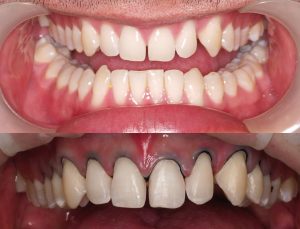
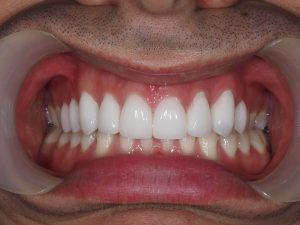
A perfect solution for imperfect teeth
There you have it – How to make porcelain veneers last longer. While there isn’t much you can do to make a dental veneer last longer than their intended lifespan; you can get the most out of them before you have to replace them. Use the tips in this guide to make your veneers last longer.
Thinking of improving the appearance of your teeth? Get in touch with us today for a free consultation in cosmetic dentistry. In the meantime, check out our webpage to find out if porcelain veneers are right for you.

